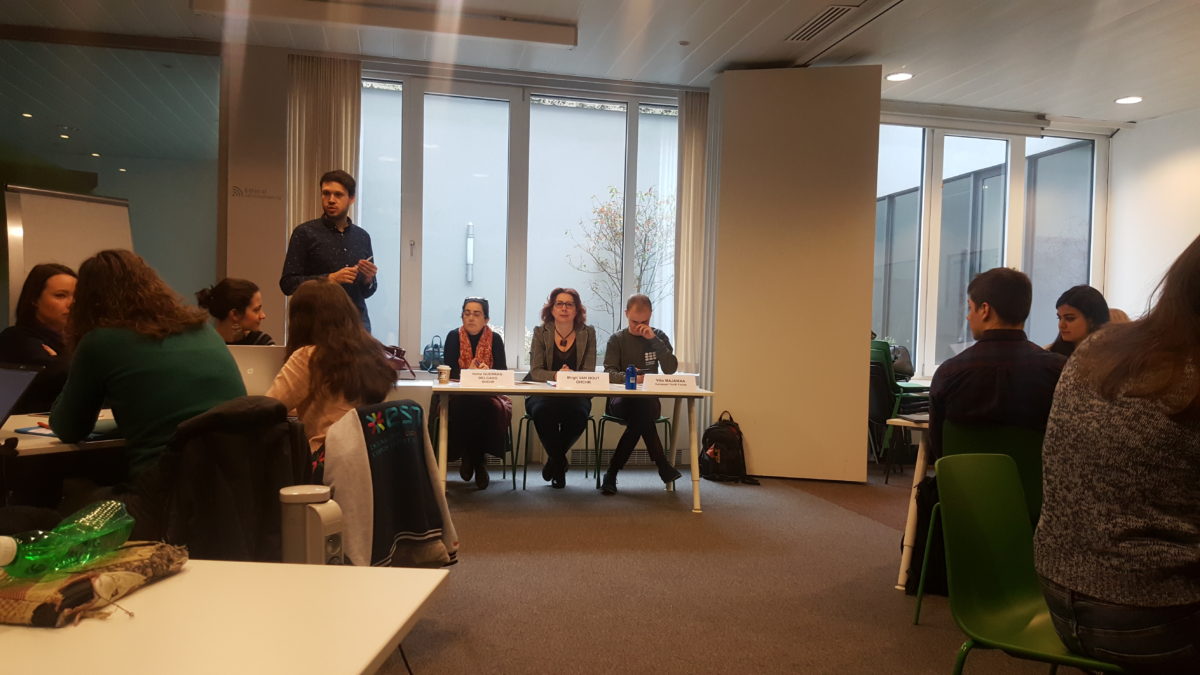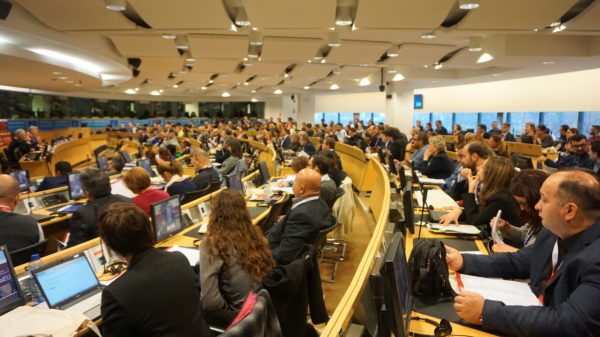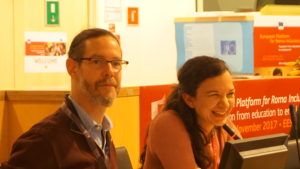Regional Consultation on Youth and Human Rights kicks off in Brussels
The European Youth Forum and Office of the UN High Commissioner for Human Rights (OHCHR) organized a Regional Consultation on Youth and Human Rights, in order to feed into a report on the same topic that will be prepared for the UN Human Rights Council later this year. ERGO Network was present at the 3 day meeting in Brussels, March 19-22.
In advance of the meeting, some background information was shared online to help participants prepare. With a thematic questionnaire from the European Youth Forum, participants could get an insight in the organization`s submission to the UN Office of the High Commissioner for Human Rights’ call for input for a study on youth and human rights.
The gathering brought together 22 participants from all over Europe from different youth networks, youth and student organizations as well as international associations. Together with EYF the aim was to give the opportunity to have in dept discussions during the event on a variety of topics that are related to youth rights, key challenges of young people, as well as framework, programs and policies designed by European actors, such as the Council of Europe and the EU.
The first panel discussion set the scene with the opening remarks delivered by representatives of the UN Office of the High Commissioner for Human Rights and the European Youth Forum. It was important to mention some highlights regarding the current situation of human rights in Europe. Statistics and research show that today much of the continent’s public transport is not accessible, 70% of Roma report hunger and constant stigmatization, 30% of young people with black and Muslim origin don’t get a job because of their names, and youth homelessness is showing a slightly increasing tendency.
Good news is that Portugal’s efforts to create an inclusive environment to Roma and minorities serves as outstanding example. The Council of Europe with its interventions also strives to better shape policies for youth with its recommendations addressed to member states. The recommendations in question are regarding 1) access to social rights of young people from disadvantaged neighbourhoods (2015); 2) youth work (2017); and young people’s access to rights (2017), the latter calling on governments to address discriminatory practises.
The key challenges that are faced by young people in Europe are present in all generations of human rights. According to Alice Barbieri (Council of Europe Advisory and Council on Youth), there is a great underrepresentation of youth at city councils, political bodies and parliaments in Europe, with only 2% of parlamentarians aged under 30 worldwide. Young people also lack education on active citizenship. Non-standard employment effects more the younger generations where the mandate is unpaid, unfair or the work is undeclared. This also means that employees are not part of the pension scheme and do not receive any social protection. It is a worrying trend to see that 30% of those aged 15-29 in EU live at the risk of social exclusion or poverty.
Amana Ferro (European Anti-Poverty Network) presented findings on key challenges for young people. According to her, the programs aimed at providing support to young people are present to some extent, but they do not function as comprehensive strategies to combat youth poverty, and do not serve as tools for great autonomy. Cash based income support is still widely considered as social benefit, however, in the European societies it serves as a key factor to social inclusion. Tamas Kadar (Equinet) introduced the framework of equality bodies in Europe, their practices and examples of discrimination.
Age restrictions take away opportunities in general from young people, and ethnic paygap remains an issue. It was highlighted that poverty is not a choice, and everyone has the right not to be poor. In order to cease poverty, one should have full ownership of life planning, and dealing with poverty shall be considered as fulfilling right rather than charity.
Key policies and programs targeting at EU, Council of Europe and UN levels outline a number of interventions in Europe and the world. Developing, implementing, monitoring and evaluating policies and programs on youth is crucial in understanding the framework of contributing to youth rights.
The Erasmus+ program is funded by the EU to provide to over 4 million Europeans the opportunity to gain competences and have a personal, socio educational and professional development through studies, raining, work experiences or volunteering abroad. The EU Youth Strategy lays out a framework for European cooperation in the youth field in the period of 2010-2018, adding here that youth policy is a national competence of member states. The EU Youth Guarantee is a scheme that aims to ease the transition from education to employment by ensuring that all young people aged 25 or under, get a good – quality offer of employment, training or further education within 4 months of leaving formal education or becoming unemployed.
The Council of Europe (Committee of Ministers) has adopted two key recommendations relating to young people’s rights: CM/Rec(2016)7 on Young People’s Access to Rights and CM/Rec(2015)3 on Access of Young People from Disadvantaged Neighbourhoods to Social Rights. The latter focuses on policies to preent and eradicate the porverty, discrimination, violence and exclusion faced by young people from disadvantaged neighbourhoods, the former covers civil, political, economic, social and cultural rigths providing guidance to states.
The United Nations adopted in 1996 and updated in 2007, the World Programme of Action for Youth (WPAY) outlines 15 priority areas of action. In 2015, the UN Security Council unanimously adopted resolution 2250 (UNSCR 2250) on Youth, Peace, and Security.
Following the thematic sessions a final report will be put together by the European Youth Forum with the inputs and contributions of the youth representatives. The report aims to recommend measures at international level – such as member states, the UN Human Rights Council – that would facilitate support the realization of young people’s rights.






